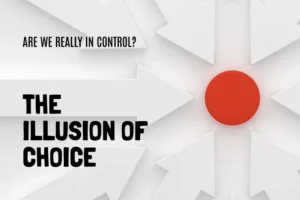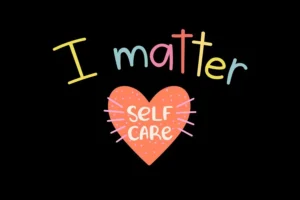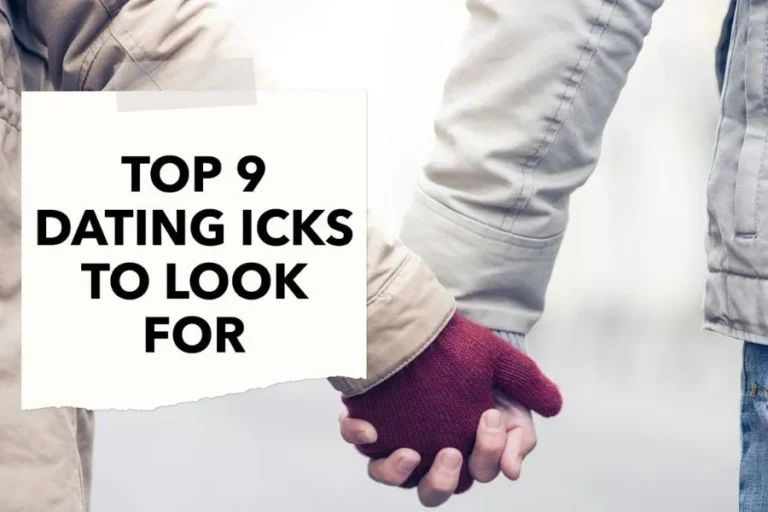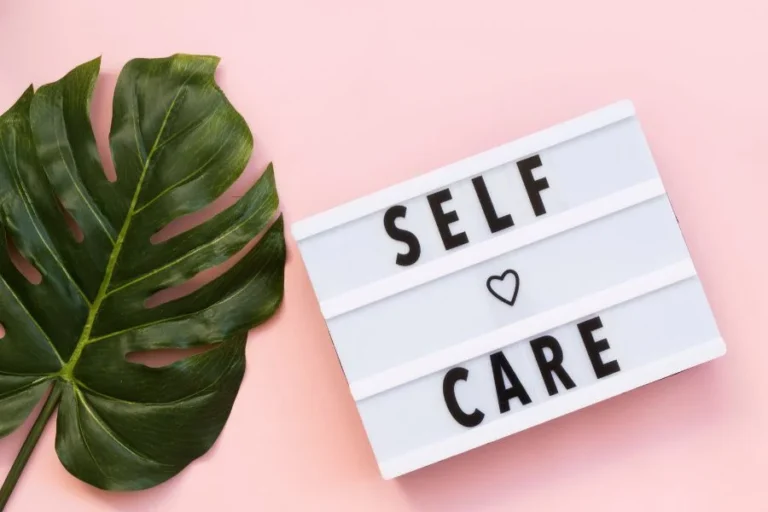Do you want to know more about what it means to have a platonic relationship? This article will enlighten you on Platonic relationships, which are non-sexual and non-romantic yet deeply bonded friendships. Knowledge about the nature of a platonic relationship will help identify its peculiarities and distinguish it from other types of relations.
No need to worry; you will learn from defining platonic relationships to answering the most frequently asked questions and scenarios. Don’t worry, though, because by the time you are done reading this article, you will be fully capable of recognizing, maintaining, and valuing your platonic relationships.
Table of Contents
What are Platonic Relationships?

Platonic Relationship Meaning
A platonic relationship is a warm, affectionate non-sexual relationship between two people. The word “platonic” originated from the philosopher Plato, who wrote about love that goes beyond appearance. These are friendships that are characterized by love, care, acceptance, emotional support and affection, which do not include any sexual contact at all.
Characteristics of a Platonic Relationship
- Emotional Bond: People feel close to each other and understand each other’s feelings and emotions to provide emotional support.
- Non-Romantic: No love or sexual desire is associated with this kind of relationship. It is asexual and aromantic.
- Mutual Respect: It was observed that both parties do not encroach on each other’s space.
- Supportive Role: They stand by each other when the going gets tough in life.
- Honesty: The first rule of platonic love is keeping the lines of communication open and informal. It involves deep conversations and shared interests.
Types of Platonic Relationships
What is a Queer Platonic Relationship?

A queer platonic relationship (QPR) is a form of very close friendship that is not considered a romantic one but also not just friendship. It deconstructs the known forms of relationships as it combines aspects of both friendship and partnership.
Here are some key aspects: Here are some key elements:
- 1. Deep Commitment: The commitment level and interpersonal attraction in a queerplatonic relationship is often compared to that in a love relationship. They can cohabit, take care of chores or children, or even have children together, but they are not necessarily lovers.
- 2. Emotional Intensity: The emotional bond in a queerplatonic relationship is usually very tight. The emotional connection and emotional intimacy are intense, and the partners are affectionate towards each other and concerned about their state.
- 3. Non-Romantic Partnership: A queerplatonic relationship is asexual and aromantic in nature. It is the practice of having a close, caring relationship to meet emotional requirements.
- 4. Flexibility in Roles: The responsibilities and demands of a QPR do not have to be rigid and depend on the partners’ preferences. It is a very flexible type of relationship, and partners can describe their partnership as they wish.
- 5. Visibility and Recognition: Although not as popular as other relationship types, QPRs are slowly being seen in society, especially in the LGBTQ+ culture. They are viewed as a substitute for the typical forms of relationship, which allows two individuals to become close without engaging in sexual activity.
Other Types of Platonic Relationships
Platonic Relationship Examples
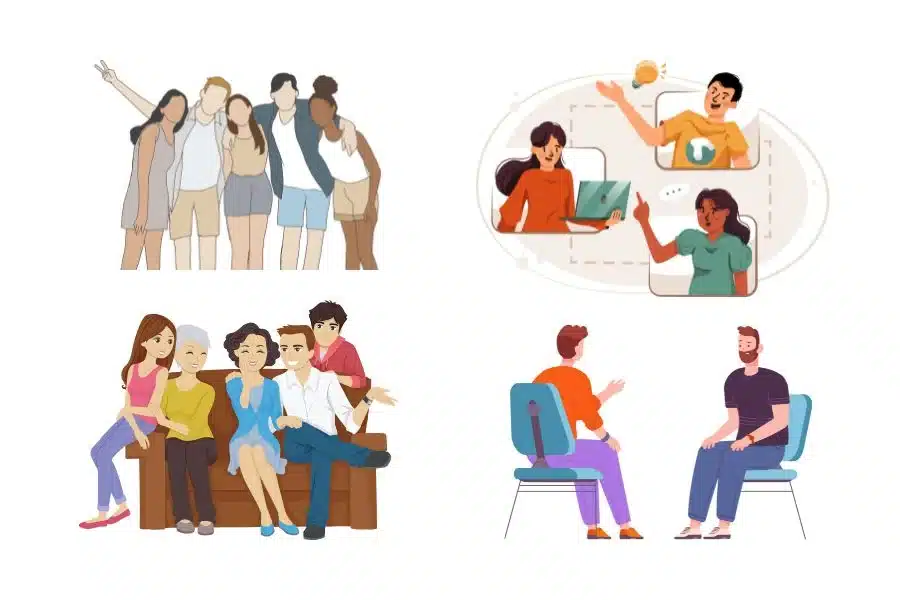
Some of the platonic relationship examples are given below:
- 1. Friendship: This is the most prevalent type of platonic love. Friends are people who have something in common, and they listen, understand, and appreciate one another. It means friends play a supportive role in everyday life and are comfortable being together without being lovers.
- 2. Work Relationships: People are able to maintain companionship at the workplace because they understand each other as professional equals. These relationships can foster mutual benefits, teamwork, productivity, and job satisfaction.
- 3. Family Bonds: The relationships between those who are close in blood, like siblings or cousins, are based on love, loyalty, acceptance, honesty, trust, and familiarity. These bonds can be incredibly strong and supportive for a person throughout his entire life.
- 4. Mentorship: Another form of platonic relationship is the mentor-mentee. Mentoring is support and direction defined by mutual respect and the sharing of information and lessons.
Related Reading: Strictly Platonic Relationships: Hidden Facts Explained
Comparisons and Differences
Platonic Relationship vs. Friendship
The concepts of platonic relationships and friendships are very similar, but they are not exactly the same. Platonic love is a close friendship between two people where there is no aspect of sexual or romantic involvement. This term was derived from the ancient Greek philosopher Plato, who defined love as purely mental or based on the spirit.
Friendship, on the other hand, is a more generalized concept than love. It extend to different levels of emotional intimacy. Friends communicate love, understanding, closeness and concern. It is important to note that all platonic relationships are friendships, but not all friendships are platonic in nature. For instance, some friendships may be characterized by romantic interest or sexual attraction between friends; therefore, they are not platonic friendships.
Plutonic vs. Platonic Relationship
The words “plutonic” and “platonic” sound similar, but they are complete opposites in terms of meaning. As mentioned earlier, “platonic” relation is aromantic and non-sexual relationship based on intellectual compatibility.
“Plutonic,” however, is not a term that can be used to define a type of relationship. It is actually derived from geology, meaning a kind of igneous rocks that crystallize below the surface of the earth. The confusion probably arises because the two words are spelled and pronounced nearly identically, but remember that “platonic” comes from Plato.
Platonic vs Romantic Relationships
Romantic and platonic relationships may be confused because they are different types of interpersonal relationships with their own dynamics. An appreciation of these differences could help dispel any confusion and better define the characteristics peculiar to each.
Emotional Connection and Intimacy

One of the most significant distinctions between platonic and romantic relationships is the concept of affection and touch. While forming a romance, there is normally a higher level of intimacy and sexual attraction that defines a romantic relationship. Romantic partners spend most of their time with their partner in private spaces, deep conversations and physical touch.
On the other hand, asexual relationships involve self-disclosure, affection, company, camaraderie, and a lot more, but with no sexual aspect. In a friendship, people show care and support to one another, but it lacks physical affection or lovemaking.
Related Reading: Intimacy Pyramid: How to Build Un-breakable Relationships
Expectations and Commitment
The other significant distinction is based on the degree of expectations and obligations in an interpersonal relationship. Consequently, romantic relationships entail specialized expectations for confidentiality, future planning, and permanence, for example, marriage or living together. In a lover’s partnership, both individuals commit time and energy to the process of creating a future, making joint decisions, and nurturing individual development.
Conversely, platonic love involve less commitment and expectations of planning for the future. Friends in casual relationships help each other to achieve personal objectives without getting bound by loyalty and commitment standards.
Communication and Boundaries
Thus, communication and boundaries cannot be the same in both cases of interpersonal relationships – friendly and romantic. Romantic lovers share personal feelings, needs, and expectations for the relationship, share secrets, and negotiate aspects of conflict within the relationship. They set limits on physical contact, the time they spend together, and emotional demands for a healthy relationship.
On the other hand, platonic lovers talk to each other freely. However, the conversation might not be as detailed about one’s personal life as one would with a romantic lover. They set rules for privacy, physical touch, and comforting each other without the complication of sexual obligations.
Physical Affection and Touch

Touch and physical contact is the most critical aspect of determining the nature of the relationship. Physical tenderness involves physical contact such as hand-holding, hugging, kissing, and other forms of touch that signify romantic attraction or affection between two romantic partners. Such manifestations contribute to strengthening the emotional connection between the partners and affirming their love.
On the other hand, a platonic friend can hug, pat, or touch each other in a friendly way without having any romantic interest or interpersonal attraction.
Related Readings: 14 Signs He’s Obsessed with You in a Good Way – True Love!
Common Questions and Scenarios
Can a Man and a Woman have a Platonic Relationship?
Of course, friendship between men and women can be extremely close and emotionally intimate without having to involve love. Sometimes, platonic love, where people have respect, trust, and shared interests, can be as fulfilling as any romantic relationship. A platonic friend usually offer comfort and companionship without the pressures associated with a romantic relationship.
Platonic lovers can subsist on similar interests, debates, or even life pursuits. Lastly, some may opine that there may be feelings of romance brewing. However, many people are able to keep a strictly platonic affection.
Can a Romantic Relationship Turn Platonic?
However, it is not easy for a romantic relationship to turn into platonic intimacy, but it is possible. This often happens when both partners realize that the passion is gone, but they still care for each other and are friends. To a large extent, this is possible through proper communication and understanding between the two categories of workers.
Both partners should express their emotions and concerns openly so that new rules can be set to ensure no confusion. At first, this may be tough, especially if one of the partners is in love with the other, but as time passes, most of the couples get used to it and become platonic lovers.
Related Reading: 20 Signs He Doesn’t Want You Sexually: What to Do Next?
Can Platonic Relationships be Romantic?
While a platonic relationship can eventually become romantic, it is contingent on the emotions and course of the relationship. Components such as trust, respect, and emotional closeness that are vital for platonic love are also characteristic of a romantic one.
If two people become romantically attracted to each other, then this change can occur. However, it’s important to voice such sentiments to keep the other person informed and avoid straining the existing friendship in case the feeling is not mutual.
Can You be in a Platonic Relationship?
Yes, you can be in a platonic relationship. Being in a platonic relationship means being very close to someone but not sexually or romantically. Such relationships involve affection, provision of support, fellowship, and friendship but do not include sexual feelings or activities.
Platonic love occur between individuals irrespective of their sex and are usually developed on the basis of shared experiences and interests. Friendship is very fulfilling; platonic intimacy help people reveal themselves emotionally and grow as individuals. It can also bring stability and a feeling of togetherness; it also shows the need to have different types of relationships in our lives.
How to Avoid Platonic Relationships
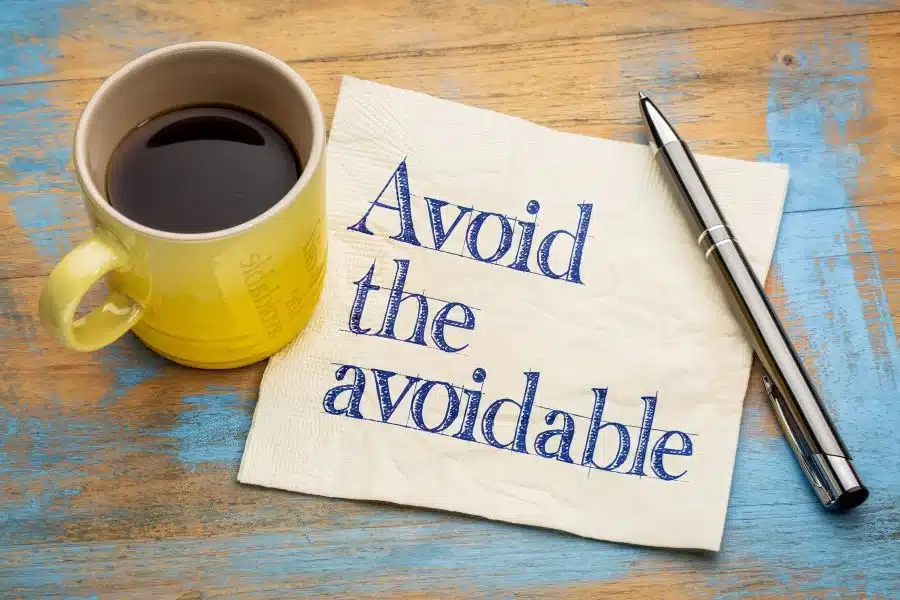
Platonic relationships may be challenging to maintain but are manageable as long as everyone maintains their respective limits and expectations.
Here are some maintenance strategies to help you navigate this:
- Clarify Your Intentions: Be truthful to yourself about what you are seeking from relationships. If the intention is to form a romantic involvement, it is wise to agree to that at the onset.
- Set Boundaries: Set healthy boundaries with friends or acquaintances to avoid platonic love. This might mean not going out on a date alone or restricting the degree of self-disclosure in a relationship.
- Focus on Personal Goals: Spend time on hobbies, career choices, or personal development. In order to minimize the feelings for deep platonic affection, one needs to indulge in activities that give him or her pleasure.
- Communicate Clearly: If someone begins developing romantic interest towards you, then you should respond to them gently but clearly. In other words, affirm your intentions of keeping things purely friendly without giving them the wrong idea.
- Seek Like-Minded Individuals: Communicate with people who have the same or similar goals and aspirations when it comes to relationships. This can help reduce misunderstandings.
How to End a Platonic Relationship

It is, therefore, essential to terminate a platonic relationship with a lot of tact in order not to offend the other party.
Here’s how you can approach it thoughtfully:
- Reflect on Your Decision: Make sure that your reasons for wanting to end the relationship are clear. Knowing your reasons will assist you in your communication.
- Choose the Right Time and Place: Choose a quiet and impartial place where both of you can discuss freely without interruptions.
- Be Honest and Direct: Be open about your feelings, but do not be rude. State how you feel without making accusations and use “I” statements.
- Listen and Validate: Permit the other person to say what he or she has to say. Tell them you understand what they are saying even though you may disagree with such a point of view.
- Offer Support: Based on the need, it is sometimes possible to assist during the transition period. This could mean keeping a friendship casual or offering resources for help with depression and anxiety.
- Respect Boundaries: After the conversation, allow the other person their distance or measure of interaction. Please do not keep them guessing or give confusing signals.
Conclusion
Platonic relationship refers to friendships that provide a particular form of companionship with affectionate feelings aside from sexual attraction. Knowing what a platonic affection entails assists in acknowledging the unique characteristics of the relationship. As encompassing both queer and platonic connections, these bonds are diverse and serve crucial social and emotional roles.
Analyzing the differences between platonic relationships and friendships helps to highlight the primary distinctions between these concepts. Disambiguating words like ‘plutonic’ and ‘platonic’ can help avoid certain misconceptions. Collecting data on non-platonic and opposite relationships offers broader coverage.
Some questions about gender roles and the transition from a romantic relationship to friendship also show that these types of relationships are not easy to define. It is, therefore, necessary, especially for these generations, to have a clear distinction between what constitutes platonic love and a romantic relationship.
Pro Tip From Basics of Psychology
To avoid complications, one should communicate effectively regarding the limits and expectations of a friendship. Scheduled meetings to check and see whether or not both parties are comfortable and that both are being treated fairly. This is helpful in avoiding misconceptions and in continuing a positive, healthy interpersonal relationship.





